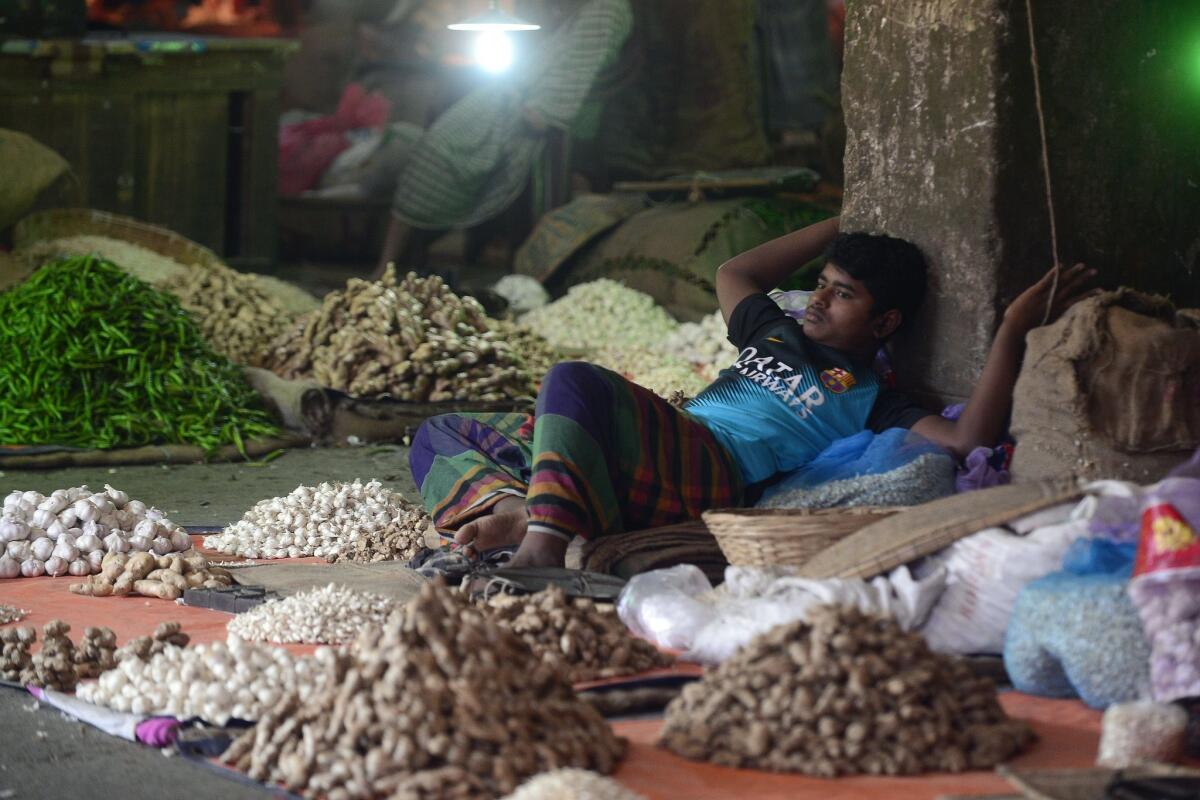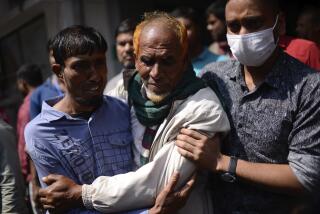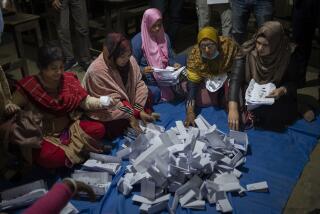Bangladesh’s long political crisis: Deaths and a stilted economy

Two months into a bloody standoff in Bangladesh that has left at least 118 people dead, the violence has eased but the political crisis continues to deepen.
After weeks of deadly arson attacks by anti-government protesters enforcing a crippling transport blockade, commercial vehicles and office workers have slowly begun to return to the streets in the congested capital of Dhaka.
Opposition leader Khaleda Zia even called for a temporary break in the blockade on Tuesday to allow Bangladeshis to celebrate the national cricket team’s surprising victory over England in the World Cup.
But the joy was short-lived as the impoverished South Asian country flirts with further chaos. Prime Minister Sheik Hasina Wajed reportedly escaped an assassination attempt last week. Zia faces possible arrest on corruption charges that could send her to jail for life, an outcome that could intensify anger against Wajed’s government.
Since the protests began in January, petrol bombings and gun battles have taken 118 lives as of Tuesday, according to official tallies. The government accuses Zia and her allies, including Jamaat-e-Islami, the country’s largest Islamist party, of a rash of arson attacks against trucks and public buses, while opposition groups say that Wajed’s supporters and security forces have contributed to the chaos.
At least 63 people have died in petrol bombings and dozens of others were killed in gun violence or clashes between rival groups, the vast majority of them civilians.
“I see nothing gained over the past two months, only losses,” said M. Hafizuddin Khan, a former government advisor and longtime anti-corruption advocate. “There is not a single sector unaffected by the blockade. The common people are hostage.”
World Bank officials estimated this week that the crisis could cost Bangladesh as much as $2 billion in lost revenue — more than 1% of the nation’s total economy.
The blockade has hampered the delivery of raw materials and goods for the garment industry, the country’s biggest income earner and No. 1 employer of women. Garment exporters, who already struggle with poor infrastructure and energy shortages, have warned of a steep drop in orders for March and April.
“Even if we overcome infrastructural problems, which might not happen overnight, the investors and buyers would hesitate to come here because they want long-term stability,” Zahid Hussain, the World Bank’s lead economist in Dhaka, told the Daily Star newspaper. “So we must return to normalcy as soon as possible for the sake of the economy.”
Fearing arson attacks that have damaged or destroyed 1,200 vehicles, most trucks have stayed off the highways. Those that travel are charging as much as twice the usual cost for carrying goods.
“Only people with emergencies are traveling by buses or having their goods carried” by trucks, said Faruk Talukder Sohel, president of the Bangladesh Bus Truck Owners Assn.
Zia’s Bangladesh Nationalist Party, Jamaat-e-Islami and others launched the protests to mark the one-year anniversary of a deeply flawed election in which Wajed came to power. The two adversaries have rotated in the premiership since 1991.
Wajed, who faced accusations of rigging the January 2014 election, has cracked down sharply on Zia’s supporters. Security forces have jailed an unknown number of people on allegations of arson, violence or “subversive activities,” and filed an unprecedented flurry of legal cases against opposition members.
Last week, diplomats from nine countries, including the United States, met Zia at her office in Dhaka, where she has been virtually confined since the demonstrations began. The U.S. and others repeated calls for both sides to renounce violence and begin talks — and perhaps tried to send the message that jailing Zia would represent a black mark against Bangladesh’s fledgling democracy.
Some analysts believe the diplomats put pressure on Zia to distance herself from her Islamist allies, particularly Jamaat-e-Islami and its student wing, who represent the strongest force among the demonstrators. The controversial Islamist party has been barred from contesting elections and many of its leaders have been accused of atrocities during Bangladesh’s 1971 war for independence from Pakistan.
The father of Avijit Roy, an American secular writer of Bangladeshi origin who was brutally slain in Dhaka last month, has blamed militants backed by Jamaat for the killing — a charge the party has denied.
“I think eventually both the government and the opposition will have to make compromises and sit down to talk, but the problem is the Jamaat-e-Islami and its allies,” said Bhaskar Roy, a New Delhi-based analyst unrelated to the slain writer. “For them, it’s an existential battle.”
Times staff writer Bengali reported from Mumbai, India and special correspondent Kader from Dhaka.
For more news from South Asia, follow @SBengali on Twitter
More to Read
Start your day right
Sign up for Essential California for news, features and recommendations from the L.A. Times and beyond in your inbox six days a week.
You may occasionally receive promotional content from the Los Angeles Times.







